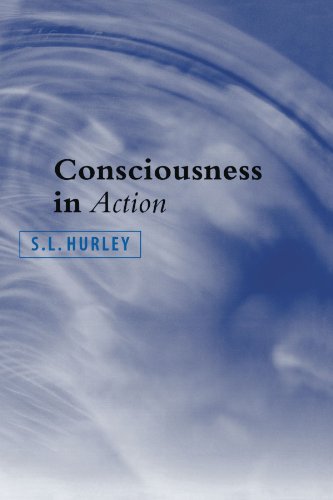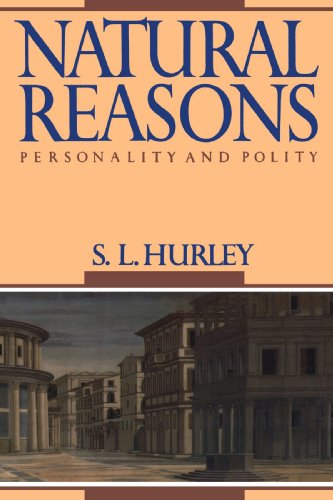Background
Hurley, Susan Lynn was born on September 16, 1954 in New York City. Daughter of Roy Thomas and Esther (Sarchian) Hurley.


( In this important book, Susan Hurley sheds new light on...)
In this important book, Susan Hurley sheds new light on consciousness by examining its relationships to action from various angles. She assesses the role of agency in the unity of a conscious perspective, and argues that perception and action are more deeply interdependent than we usually assume. A standard view conceives perception as input from world to mind and action as output from mind to world, with the serious business of thought in between. Hurley criticizes this picture, and considers how the interdependence of perceptual experience and agency at the personal level (of mental contents and norms) may emerge from the subpersonal level (of underlying causal processes and complex dynamic feedback systems). Her two-level view has wide implications, for topics that include self-consciousness, the modularity of mind, and the relations of mind to world. The self no longer lurks hidden somewhere between perceptual input and behavioral output, but reappears out in the open, embodied and embedded in its environment. Hurley traces these themes from Kantian and Wittgensteinian arguments through to intriguing recent work in neuropsychology and in dynamic systems approaches to the mind, providing a bridge from mainstream philosophy to work in other disciplines. Consciousness in Action is unique in the range of philosophical and scientific work it draws on, and in the deep criticism it offers of centuries-old habits of thought.
http://www.amazon.com/gp/product/0674007964/?tag=2022091-20

(Hurley here revives a classical idea about rationality in...)
Hurley here revives a classical idea about rationality in a modern framework, by developing analogies between the structure of personality and the structure of society in the context of contemporary work in philosophy of mind, ethics, decision theory and social choice theory. The book examines the rationality of decisions and actions, and illustrates the continuity of philosophy of mind on the one hand, and ethics and jurisprudence on the other. A major thesis of the book is that arguments drawn from the philosophy of mind may be used to undermine widely held subjectivist positions in ethics and politico-economic theory. The work is inspired by the philosophies of Wittgenstein and Davidson, but goes on to connect their arguments about interpretation with formal work in decision theory and social choice theory, and with the theory of adjudication.
http://www.amazon.com/gp/product/0195080122/?tag=2022091-20
Hurley, Susan Lynn was born on September 16, 1954 in New York City. Daughter of Roy Thomas and Esther (Sarchian) Hurley.
AB summa cum laude, Princeton University, 1976. Bachelor Philosophy with distinction, Oxford University, England, 1979. Master of Arts, Oxford University, England, 1981.
Doctor of Philosophy, Oxford University, England, 1983. Juris Doctor cum laude, Harvard University, 1988.
She wrote on practical philosophy as well as on philosophy of mind, bringing these disciplines closer together. Her work draws on sources from the social sciences as well as the neurosciences, and can be broadly characterised as both naturalistic and interdisciplinary. Her mother, a first-generation Armenian immigrant, was a secretary, whereas her father was an aviation industry executive.
There is no good reason to assume, Hurley argues, that subpersonal processes on which the mind depends always need to respect the boney boundary of the skull.
Hurley"s externalism is connected to her critiques of what she has called "the classical sandwich model of the mind". Traditionally, philosophers and empirical scientists of the mind have regarded perception as input from world to mind, action as output from mind to world, and cognition as sandwiched between.
According to Hurley there is no reason to suppose the mind is necessarily organised in this vertically modular way and, moreover, there is good reason to believe it is actually organised differently. An alternative would be a horizontally modular architecture, which is for example used in Rodney Brooks"s robots.
In one of her last texts, Hurley proposes a horizontally modular architecture that could enable social cognitive skills.
(Hurley here revives a classical idea about rationality in...)
( In this important book, Susan Hurley sheds new light o...)
( In this important book, Susan Hurley sheds new light on...)
( The recent past has seen striking advances in our under...)
In Consciousness in Action, as well as in many of her articles, Hurley defends vehicle externalism, the view that mental processes do not necessarily have to be explained in terms of internal processes.
Member Anmesty International.
